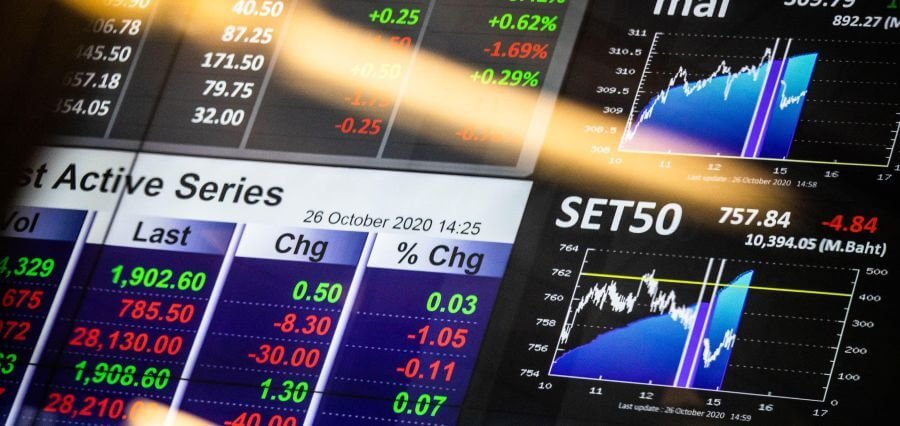Investing in Emerging Markets: Risks and Rewards of Trading Stocks Abroad
4 min read
Are you an investor looking to diversify and expand your portfolio? Trade stocks in other countries. Investing in emerging markets can be incredibly rewarding, but they come with risks that need to be considered before entering the market. With many unknowns, investors may feel hesitant about investing abroad; however, when done correctly, trading stocks overseas offers a world of potential financial opportunities and more control over risk assessment and transparency.
In this article, we’ll explore both the positive rewards and some of the risks associated with international stock investment so that you can make sound decisions for your portfolio today.
Understanding the Basics of Investing in Emerging Markets
Investing in emerging markets can be a daunting task for any would-be investor. These markets are often associated with higher risk and volatility than established markets, making it crucial for investors to understand the basics before venturing into them. Emerging markets are typically economies undergoing rapid growth and industrialisation, with a rising middle class and increasing demand for goods and services.
While the potential for growth and high returns is attractive, it is essential to note that these markets can be affected by political instability, currency fluctuations, and other economic uncertainties. As such, an investor must do due diligence to identify potential risks and opportunities within these markets. Ultimately, carefully understanding the basics of investing in emerging markets can lead to lucrative investments and diversified portfolios.
Comparing Domestic and Foreign Market Regulations
In addition to understanding the basics of emerging markets, it is also essential for investors to consider the differences between domestic and foreign market regulations. Investors must understand that trading stocks abroad will come with a unique set of rules and regulations that can differ significantly from those found in domestic markets. Investors should research all relevant securities laws and regulations before investing in foreign markets.
For example, the disclosure requirements for public companies in some countries may be more limited than those found at home. Additionally, some nations may restrict certain types of investments or limit the percentage of ownership by non-residents. Understanding these complexities is crucial to successfully navigating international stock investment. Stocks trading overseas also requires a complete understanding of the foreign tax systems and their implications on investment returns.
Developing Your Risk Management Strategies
To be successful in international stock investment, investors must develop a comprehensive risk management strategy. It includes assessing the market conditions and gathering enough information on the companies they want to invest in.
Investors should also use technical analysis tools such as chart patterns and price movements to identify potential market trends or reversals. Additionally, investors must create a diversified portfolio that can withstand any economic downturns or fluctuations in emerging markets. With these strategies in place, investors can better manage their risk while reaping the rewards of trading stocks abroad.
Leveraging Online Brokerage Platforms for International Trading
In recent years, online brokerage platforms have become increasingly popular for investors looking to trade stocks overseas. These platforms offer various services, such as portfolio management tools, real-time market data and news, and access to global markets. Many of these platforms also provide powerful analytical tools to help investors make sound decisions when trading in foreign markets.
With the help of these online brokers, international stock investment has become more accessible to retail investors than ever before. By leveraging the capabilities of these online brokerage platforms, investors can gain access to an array of international stocks without having to be physically present in the country itself.
Analysing Currency Exchange Rates and Volatility
Investors must pay close attention to currency exchange rates and volatility when trading stocks abroad. Exchange rate fluctuations can significantly impact the returns of international investments, as changes in the exchange rate can significantly decrease or increase returns depending on how they are converted into local currency.
Additionally, investors should consider the economic stability of the country they are investing in to ensure their investments will remain safe even in economic downturns. By considering these factors, investors can further mitigate risks associated with international stock investment.
Utilising Technical Analysis to Make Informed Decisions
The final of our trading tips is that investors should utilise technical analysis when trading stocks in foreign markets. Technical analysis involves using past price data to identify and interpret patterns that may provide insight into future market movements. It can benefit investors looking to make informed decisions about their investments in emerging markets.
By applying technical analysis tools, such as trend lines, support and resistance levels, oscillators, or candlestick charts, investors can better understand the underlying trends and dynamics of the market they are investing in. With this information, they will be better equipped to make sound investment decisions for their international stock portfolios.





